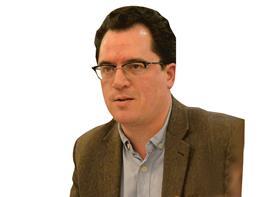Personal stories shared during Justice Week, as well as events, parliamentary debate and published research, will make a case for the justice system beyond the legal community.

Readers who have experience of demonstrations will know popular placard slogans include variants on the line: ‘I can’t believe I still have to protest this stuff.’ Lawyers may be feeling something similar at the start of the first ‘Justice Week’, a joint initiative by the Law Society, the Bar Council and CILEx to focus attention on why our battered justice system is ‘so fundamental to our society, economy and democracy’.
Surely the case for supporting justice and just outcomes is obvious? In truth, experience has shown us that the case for the justice system is made in competition with other ideas – not least the need to reduce the deficit, to tackle crime, and to ‘control our borders’.
Justice Week will use events, parliamentary debate, shared stories and published research to make the case for the justice system to the media, politicians, industry, the third sector and the general public.
In this task, personal stories have the power make a case to those beyond the legal community, and give added resolve to those who ‘still have to protest this stuff’.
Our cover photograph is of ‘Chahla’ and her son (her story and others are the focus of a photo exhibition in the Law Society’s main reception area this week, and also form an online exhibition). A badly timed divorce, the war in Syria, her Syrian nationality and an indifferent Home Office divided her from her son, a British citizen. The Home Office repeatedly refused her applications to return to him in the UK. She found a solicitor, Sonal Ghelani, who threatened judicial review proceedings. At that point the Home Office relented. She is now reunited with her son, and has indefinite leave to remain in the UK.
Chahla’s is one of the stories being promoted this week. We feature event highlights of the week on page 3. More can be found at Justice Week 2018 programme.































No comments yet